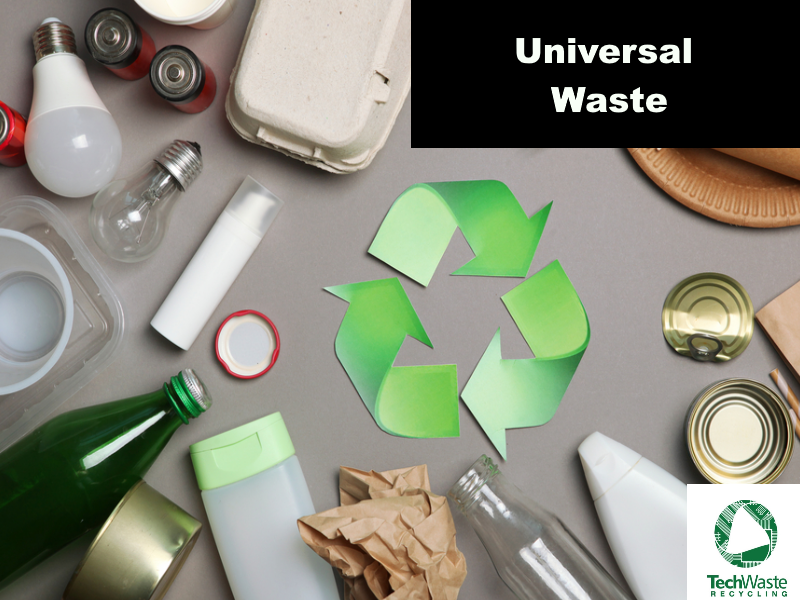Universal waste is any waste from homes and industries that are considered harmful to the health and environment because of elements such as lead, cadmium, and mercury. Universal waste cannot be thrown into landfills and must not be mixed with household waste.
What is Classified as Universal Waste?
The following are classified as universal waste.
- Mercury-containing equipment such as thermometers, thermostats, mercury rubber flooring, vacuum or pressure gauges, dental amalgams, mercury gas flow regulators, and mercury-added footwear and jewelry
- Batteries like alkaline batteries, rechargeable nickel-cadmium batteries mercury batteries, and silver button batteries
- Electronic devices such as computers, mobile phones, VCRs, DVD players, TVs, and electronics with or without a cathode ray tube (CRT)
- CRTs (glass picture tubes inside computer monitors and TVs), including CRT glass that has been broken or given to recycling
- Electric lamps that contain mercury, fluorescent bulbs and tubes, sodium vapor lamps, and high intensity discharge lamps
- Non-empty aerosol cans
Who is Involved in Managing Universal Waste?
Universal Waste Handlers are those producing the universal waste, or facilities that receive and collect universal waste from another universal waste handler. Facilities accepting universal waste may send these to another universal waste handler or perform recycling methods on the universal waste. Universal waste handlers are covered by mandates for proper waste treatment and segregation.
Universal Waste Transporters are involved in conveying universal waste via rail, highway, air, or water. Transportation may be done by means of shipping services, commercial vehicles, or the universal waste handler’s own vehicle.
Destination Facilities, such as TechWaste Recyling Inc., are certified centers for proper handling, treatment, disposal, and recycling of universal waste. The destination facility must adhere to specific guidelines for shipping, rejecting, and record-keeping of universal wastes. Destination facilities such as hazardous waste recycling facilities and hazardous waste landfills must keep a record of all universal waste obtained over a three-year period.


































